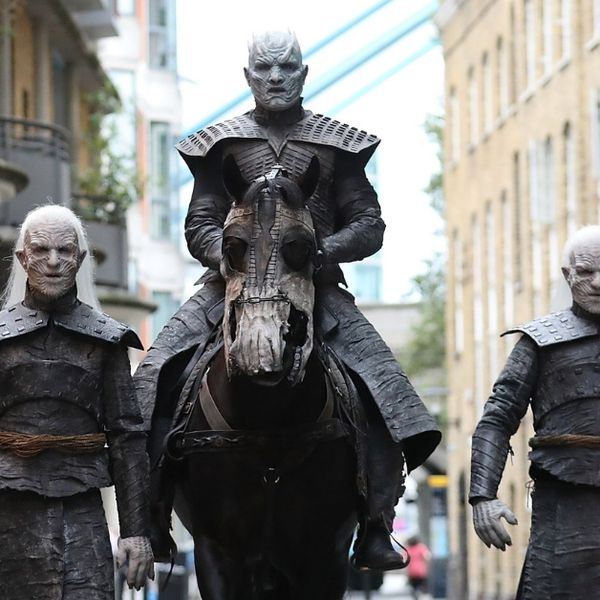September, 2004, LOS ANGELES - In this age of jet travel, time is shortened, work is intensified, and we cover many bases. We dash from one place to another on varying missions in a very full month. And as usual, September had me on quick trips to New York for a meeting and to Emeryville, California, for a voice-over job. But travel can also transport in time as well as to a place. Last month, I went back to my boyhood.
I traveled to a place called Rohwer in southeast Arkansas where I spent a part of my childhood years. It is a place of memories for me - memories that glow with a golden haze. I remember the lush bayous filled with strange sounds and creepy, crawly creatures. I remember catching pollywogs in a ditch and watching them miraculously sprout legs and eventually turn into frogs. I remember waking up one magical winter morning and discovering everything covered in white - cold, soft snow. I also remember the barbed wire fence that kept me confined in that camp. I traveled back to a time of innocence, a time when I was quite unaware of the devastation that had befallen my parents and 120,000 other Japanese Americans. It was World War II and our crime was that we just happened to "look like the enemy."
 A child is incredibly adaptable to the most abnormal of conditions. To me, the tall guard towers and the barbed wire fence that incarcerated my family and me became part of my normal landscape. What would be abnormal in normal times became my normality. It became normal for me to line up three times a day to eat in a noisy mess hall. It became normal for me to go with Daddy to a communal shower and bathe with many men. It became normal for me to go to school in a black, tarpaper-covered barrack. I learned to recite the Pledge of Allegiance to the flag within sight of armed sentries watching over us. I was too young to appreciate the irony as I recited the words, "with liberty and justice for all."
A child is incredibly adaptable to the most abnormal of conditions. To me, the tall guard towers and the barbed wire fence that incarcerated my family and me became part of my normal landscape. What would be abnormal in normal times became my normality. It became normal for me to line up three times a day to eat in a noisy mess hall. It became normal for me to go with Daddy to a communal shower and bathe with many men. It became normal for me to go to school in a black, tarpaper-covered barrack. I learned to recite the Pledge of Allegiance to the flag within sight of armed sentries watching over us. I was too young to appreciate the irony as I recited the words, "with liberty and justice for all."
The return to Arkansas was undeniably filled with many emotions - but this time with deeper understanding and an overpowering sense of uplift. The pilgrimage to Rohwer was on the final day of a richly enlightening week in Little Rock, Arkansas. A week-long series of programs called "Life Interrupted: The Japanese American Experience in World War II Arkansas" was being capped with a long bus caravan that rolled past mile after mile of ripening cotton fields to Camp Rohwer as well as to a second internment camp in Arkansas called Camp Jerome.
 The week was awe-inspiring. Over 1,300 people, many of them former internees with their children and grandchildren, had gathered in Little Rock from all over the nation. There were lawyers, educators, historians, politicians, and others from all walks of life. The Japanese American National Museum, working in partnership with the University of Arkansas at Little Rock opened eight exhibits in four different venues located throughout the city. The principal exhibits; "America's Concentration Camp" and "Against Their Will: The Japanese American Experience in WWII Arkansas" are in the Statehouse Convention Center. The stirring story of young Japanese Americans who went from unjust incarceration behind barbed wire fences to fight heroically for the United States are told by three deeply moving exhibits in the Douglas MacArthur Museum of Military History. A handsome and affecting art exhibit of the paintings of Henry Sugimoto, who was incarcerated in both of the two Arkansas camps, can be viewed at the Cox Arts Center and two exhibits on the arts and crafts in the internment camps are at the Fine Arts Building of the University of Arkansas at Little Rock.
The week was awe-inspiring. Over 1,300 people, many of them former internees with their children and grandchildren, had gathered in Little Rock from all over the nation. There were lawyers, educators, historians, politicians, and others from all walks of life. The Japanese American National Museum, working in partnership with the University of Arkansas at Little Rock opened eight exhibits in four different venues located throughout the city. The principal exhibits; "America's Concentration Camp" and "Against Their Will: The Japanese American Experience in WWII Arkansas" are in the Statehouse Convention Center. The stirring story of young Japanese Americans who went from unjust incarceration behind barbed wire fences to fight heroically for the United States are told by three deeply moving exhibits in the Douglas MacArthur Museum of Military History. A handsome and affecting art exhibit of the paintings of Henry Sugimoto, who was incarcerated in both of the two Arkansas camps, can be viewed at the Cox Arts Center and two exhibits on the arts and crafts in the internment camps are at the Fine Arts Building of the University of Arkansas at Little Rock.
Saturday was a one-day symposium composed of twenty-seven sessions with discussions that ranged from democracy to civil rights to military service to historic preservation. For me, the most daunting part of the day's program was the luncheon. President Bill Clinton, the former governor of Arkansas, was on the printed program as our luncheon keynote speaker. As we all knew by that time, his emergency heart surgery in New York had sidelined him from all public activities. I was asked to substitute for him - substitute for the silver tongued former President of the United States! The challenge was as awesome as the honor. I had to rise to the honor.
 I began by sharing the heartwarming joy I felt on meeting people I had not seen in decades and of people who remembered me as a little boy but that I - try as I might - could not. I talked of my fond memories of a boyhood in Rohwer. I talked of the stinging irony I felt on seeing the crumbling old monument in the cemetery at Rohwer - a memorial to Japanese American soldiers who went from internment camps to perish in a war fighting for democracy and are now buried at the site of their incarceration. I talked of an invitation I received in the year 2000 from President Clinton to the White House to witness the granting of nineteen medals of honor, the highest military recognition of the nation, to nineteen Japanese American veterans of World War II. Fifty-five years before, at the end of the war, these men had been recognized with the Distinguished Service Cross, the second-highest military honor, for their heroic deeds. However, after a review mandated by order of Congress in 1996, it was found that their acts of valor eminently merited the highest honor. Only wartime prejudice had reduced their tribute. Among these extraordinary members of the Greatest Generation receiving the Medal of Honor was the senior U.S. Senator from Hawaii, Senator Daniel Inouye, who lost his right arm on a bloody battlefield in Italy. These men and all the Japanese American veterans of World War II had transformed this nation. They made my America today a reality.
I began by sharing the heartwarming joy I felt on meeting people I had not seen in decades and of people who remembered me as a little boy but that I - try as I might - could not. I talked of my fond memories of a boyhood in Rohwer. I talked of the stinging irony I felt on seeing the crumbling old monument in the cemetery at Rohwer - a memorial to Japanese American soldiers who went from internment camps to perish in a war fighting for democracy and are now buried at the site of their incarceration. I talked of an invitation I received in the year 2000 from President Clinton to the White House to witness the granting of nineteen medals of honor, the highest military recognition of the nation, to nineteen Japanese American veterans of World War II. Fifty-five years before, at the end of the war, these men had been recognized with the Distinguished Service Cross, the second-highest military honor, for their heroic deeds. However, after a review mandated by order of Congress in 1996, it was found that their acts of valor eminently merited the highest honor. Only wartime prejudice had reduced their tribute. Among these extraordinary members of the Greatest Generation receiving the Medal of Honor was the senior U.S. Senator from Hawaii, Senator Daniel Inouye, who lost his right arm on a bloody battlefield in Italy. These men and all the Japanese American veterans of World War II had transformed this nation. They made my America today a reality.
 I talked of the challenges of our democratic ideals. It takes courageous, principled people to struggle to fulfill those ideals. Throughout the history of our nation, injustices were battled by the disenfranchised. African Americans struggled against slavery, then Jim Crow laws, and other discrimination to transform this nation. Women, who were denied any role in leadership, struggled to gain equality and justice and helped to transform this nation. In the history of the American southwest, Latinos had endured a host of injustices but still they struggled to fulfill the ideals of our nation. I talked that day in Little Rock about our democracy as a dynamic work-in-progress. All of us, the great diversity of this land, working in concert as Americans carry out the promise of our American ideals. When I finished, the audience rose up in a standing ovation. That week in Little Rock, Arkansas will forever be an unforgettable benchmark in my life.
I talked of the challenges of our democratic ideals. It takes courageous, principled people to struggle to fulfill those ideals. Throughout the history of our nation, injustices were battled by the disenfranchised. African Americans struggled against slavery, then Jim Crow laws, and other discrimination to transform this nation. Women, who were denied any role in leadership, struggled to gain equality and justice and helped to transform this nation. In the history of the American southwest, Latinos had endured a host of injustices but still they struggled to fulfill the ideals of our nation. I talked that day in Little Rock about our democracy as a dynamic work-in-progress. All of us, the great diversity of this land, working in concert as Americans carry out the promise of our American ideals. When I finished, the audience rose up in a standing ovation. That week in Little Rock, Arkansas will forever be an unforgettable benchmark in my life.
The "Life Interrupted" programs that examine a dark chapter of American history were themselves history making. We have profoundly important lessons for our times today to be learned from the exhibits, the symposium, and the pilgrimage. My heartfelt gratitude goes to the Winthrop Rockefeller Foundation whose generous support made it possible for us to bring history so relevantly alive.
 A great bonus of the trip to Little Rock was a preview peek at the dazzling new William Jefferson Clinton Library and Presidential Center set to open on November 18th. The hard-hat tour of the Clinton library, museum, and school of public service was wonderfully tantalizing. The modern steel and glass building is a sleek symbol of the "bridge to the 21st century" that President Clinton so often spoke about. The sensitively restored old Choctaw Railway Station in a landscaped park, which will house the Clinton School of Public Service, is the very symbol of history brought back into the current of contemporary life. I toured the work-in-progress with a few students working hard on the Grand Opening and Dedication of this newest of Presidential Centers, Mike Eady and Sara Beth Crow. I promised Mike and Sara Beth that I would return to Little Rock for that history-making day in November. I told them I have my own roots in Arkansas.
A great bonus of the trip to Little Rock was a preview peek at the dazzling new William Jefferson Clinton Library and Presidential Center set to open on November 18th. The hard-hat tour of the Clinton library, museum, and school of public service was wonderfully tantalizing. The modern steel and glass building is a sleek symbol of the "bridge to the 21st century" that President Clinton so often spoke about. The sensitively restored old Choctaw Railway Station in a landscaped park, which will house the Clinton School of Public Service, is the very symbol of history brought back into the current of contemporary life. I toured the work-in-progress with a few students working hard on the Grand Opening and Dedication of this newest of Presidential Centers, Mike Eady and Sara Beth Crow. I promised Mike and Sara Beth that I would return to Little Rock for that history-making day in November. I told them I have my own roots in Arkansas.
Woman Was Fired For Refusing To Wear A Bra At Work—And Now She's Suing
Christina Schell, from Alberta, Canada, stopped wearing bras three years ago citing health reasons.
While Schell did not specify the health reasons, she did state she finds them to be "horrible."
But after her refusal to sign or adhere to a new enforced dress code policy to wear a bra or tank top under her work shirt at a golf course grill where she worked, Schell was promptly fired.
Now, the 25-year-old has filed a human rights violation against the Osoyoos Golf Club, Osoyoos, in British Columbia, Canada.
Schell said:
"I don't think any other human being should be able to dictate another person's undergarments."
When she asked the general manager, Doug Robb, why she had to comply, the manager told her the mandate was for her protection.
Robb allegedly said:
"I know what happens in golf clubs when alcohol's involved."
After losing her job, she brought the case to the British Columbia Human Rights Tribunal and told them the club's dress code was discriminatory because the rule didn't apply towards male employees.
Schell told CBC:
"It's gender-based and that's why it's a human rights issue. I have nipples and so do the men."
David Brown, an employment lawyer in Kelowna, BC, said gender-specific dress codes could be viewed as discriminatory under the BC Human Rights Code.
He stated:
"It's an interesting question as to whether or not an employer can dictate the underwear that women can wear, but they don't say anything about the underwear that men can wear, and does that create an adverse impact on the individual?"
Brown added:
"If this policy is found to be discrimination, the next question is does the employer have a bonafide occupational requirement to essentially impose this on the individual?"
"I'm kind of scratching my head as to what that occupational requirement would be."
@GlobalBC The policy is sexist the peopl supporting it are sexist. Hope she wins her complaint— Lori bell (@Lori bell) 1529692660.0
@Shelby_Thom @WoodfordCHNL @GlobalOkanagan @GlobalBC Then men should have to wear either a tank top or undershirt— caffene fiend (@caffene fiend) 1529624161.0
@SoldByBrock @Shelby_Thom @GlobalOkanagan @GlobalBC What does common courtesy have to do with wearing a bra? Breast… https://t.co/ZVI2xDdpgf— M Shumway (@M Shumway) 1529843759.0
As for the tank top option, due to working under oftentimes extreme heat serving tables outsides, Schell did not want to wear another layer of clothes just because of her gender.
Schell said:
"It was absurd. Why do you get to dictate what's underneath my clothes?"
Employment lawyer Nadia Zaman told CBC that the club can enforce a gender-specific policy as they deem necessary as long as the establishment can prove it is for the occupational safety of its workers.
But the attorney questioned if forcing female employees to wear a bra was applicable in this case.
Zaman stated:
"If they simply require that female employees wear a bra but then they don't have a similar requirement for males, and they can't really justify that … then there is a risk that their policy's going to be deemed to be discriminatory."
Under British Columbia's discrimination law, it is illegal for employers:
'to discriminate against any individual because of his race, color, religion, sex, or national origin'.
@GlobalBC @globalnews Logistically bras or the absence of does not impact health or work performance. That is my v… https://t.co/65cLHBMowf— Louisette Lanteigne (@Louisette Lanteigne) 1529769211.0
McDonald's employee Kate Gosek, 19, agrees with Schell in that the dress code is "unnecessary." She too was harassed by her employers at a McDonald's in Selkirk, Manitoba, over refusing to wear a bra.
"She just told me that I should put on a bra because, McDonald's—we are a polite restaurant and no one needs to see that."
Schell's case sparked plenty of debates on Twitter.
@DunnMan77 @GlobalBC It's just discriminatory, woman shouldn't have to wear bras if they don't want to. As well as… https://t.co/RXhRVWUuNy— Mary Johnson (@Mary Johnson) 1529685276.0
@DunnMan77 @GlobalBC Men do not have to wear underpants if they don't want to. As of right now there are no laws to… https://t.co/l8FuPVybWo— Mary Johnson (@Mary Johnson) 1529686418.0
@GlobalBC Women have the right not to be forced to wear a bra Shaving & makeup also is a choice. If you want to do… https://t.co/Ybkj6PLDnD— Lozan (@Lozan) 1529686156.0
@Lozan72 @GlobalBC I would completely understand her and your argument if we were talking about a potential law to… https://t.co/trRyNAubn4— Chris George (@Chris George) 1529690293.0
@GlobalBC This story frustrates me. There's no dress code equivalent for men? Well if I saw the outline of a male s… https://t.co/5YbAvXKRcO— Molly Max (@Molly Max) 1529705327.0
Schell is not alone in her disdain for bras.
@GlobalBC I personally HATE wearing a #bra absolutely hate it with passion and unashamed to admit it. I HATE BEING… https://t.co/GEi3LtxIDa— Lozan (@Lozan) 1529686305.0
Schell is still waiting to hear from the Human Rights Commission about her claim.
H/T - GettyImages, Twitter, Indy100, CBC











